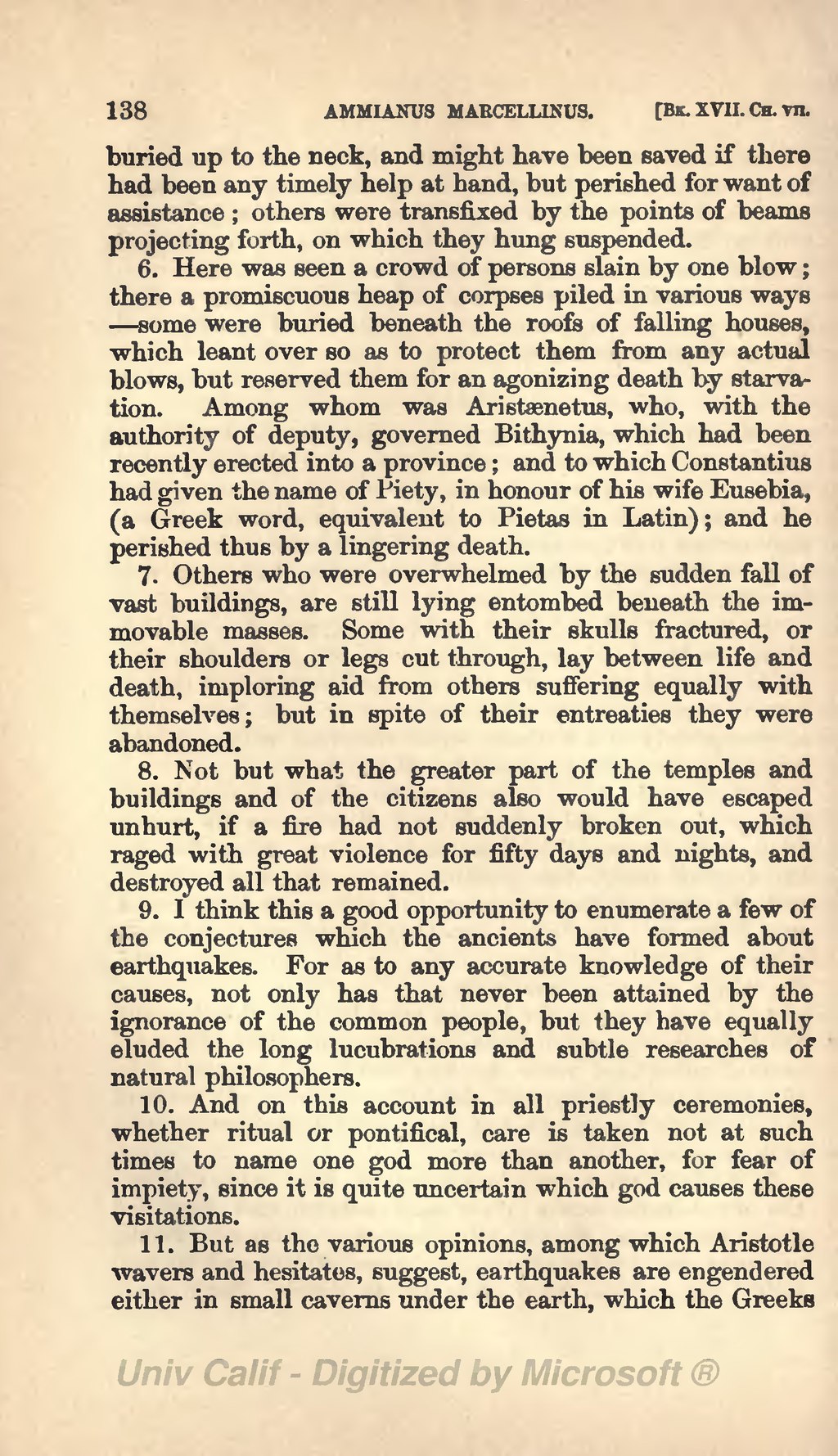buried up to the neck, and might have been saved if there had been any timely help at hand, but perished for want of assistance; others were transfixed by the points of beams projecting forth, on which they hung suspended.
6. Here was seen a crowd of persons slain by one blow; there a promiscuous heap of corpses piled in various ways—some were buried beneath the roofs of falling houses, which leant over so as to protect them from any actual blows, but reserved them for an agonizing death by starvation. Among whom was Aristænetus, who, with the authority of deputy, governed Bithynia, which had been recently erected into a province; and to which Constantius had given the name of Piety, in honour of his wife Eusebia, (a Greek word, equivalent to Pietas in Latin); and he perished thus by a lingering death.
7. Others who were overwhelmed by the sudden fall of vast buildings, are still lying entombed beneath the immovable masses. Some with their skulls fractured, or their shoulders or legs cut through, lay between life and death, imploring aid from others suffering equally with themselves; but in spite of their entreaties they were abandoned.
8. Not but what the greater part of the temples and buildings and of the citizens also would have escaped unhurt, if a fire had not suddenly broken out, which raged with great violence for fifty days and nights, and destroyed all that remained.
9. I think this a good opportunity to enumerate a few of the conjectures which the ancients have formed about earthquakes. For as to any accurate knowledge of their causes, not only has that never been attained by the ignorance of the common people, but they have equally eluded the long lucubrations and subtle researches of natural philosophers.
10. And on this account in all priestly ceremonies, whether ritual or pontifical, care is taken not at such times to name one god more than another, for fear of impiety, since it is quite uncertain which god causes these visitations.
11. But as the various opinions, among which Aristotle wavers and hesitates, suggest, earthquakes are engendered either in small caverns under the earth, which the Greeks
